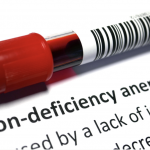Nurturing Teenage Mental Health

Building a Supportive Environment and Healthcare Team
Supporting teenagers with their mental health is crucial during their transformative years. Adolescence can be a challenging period, marked by various emotional, social, and academic pressures. As parents, guardians, healthcare practitioners and mentors, it is essential to create a supportive environment that fosters their wellbeing and helps them navigate these challenges. Supporting the mental wellbeing of teenagers and adolescents requires a holistic and personalised approach to their healthcare.
So let’s explore some practical naturopathic strategies to empower teenagers in nurturing their mental health, naturally.
Encourage Open Communication
- Establishing open lines of communication is vital in supporting teenage mental health. Encourage your teenager to express their thoughts and feelings openly without judgement. According to a study published in the Journal of Youth Studies (Holt et al., 2019), open parent-teen communication is associated with lower levels of depression and higher self-esteem in adolescents. This goes to show that creating a safe space where they feel comfortable can create a world of difference at home. Allow teens to discuss their concerns and actively listen to them without interruption and provide empathetic support. This helps to validate their emotions and promotes a sense of trust and understanding.
Educate Yourself on Mental Health
- Take the time to educate yourself about various mental health issues that teenagers commonly face. Learn about anxiety, depression, self-esteem, body image issues, eating disorders, and other challenges that may arise. Understanding the signs and symptoms can help you recognise when your teenager may be struggling and enable you to provide appropriate support or seek professional help if needed.
Foster Healthy Coping Mechanisms
- Encourage your teenager to develop healthy coping mechanisms to manage stress and emotional challenges. Help them explore activities they enjoy, such as hobbies, sports, or creative outlets, which can provide a sense of purpose and relaxation. Teach them relaxation techniques like deep breathing, mindfulness, or journaling as tools to manage stress and build resilience.
Teaching teenagers mindfulness and relaxation techniques empowers them to manage stress and cultivate emotional resilience. Practices such as deep breathing, meditation, and visualisation help regulate the nervous system, reduce anxiety, and enhance overall wellbeing. These techniques provide valuable tools for teenagers to navigate the challenges they face daily.
Promote Physical Wellbeing
- Physical health and mental health are closely linked. Encourage regular physical exercise, as it releases endorphins which help us feel happy and calm. Encourage your teenager to engage in activities they enjoy, such as sports, dancing, or yoga. Additionally, we also need to ensure they have a balanced diet, sufficient sleep, and a healthy lifestyle to support their mental and emotional well-being.
Encouraging healthy lifestyle habits is crucial for optimal mental health. I collaborate with teenagers to create achievable goals around sleep hygiene, exercise routines, and digital detoxification. Adequate sleep, regular physical activity, and limited screen time contribute to improved mood, cognitive function, and overall mental wellbeing.
Encourage Healthy Relationships
- Positive relationships play a significant role in teenage mental health. Support your teenager in cultivating healthy friendships and developing supportive social connections. A study published in the Journal of Adolescence (Kansky et al., 2014) highlights the positive impact of supportive relationships on teenagers’ mental wellbeing, including reduced stress and increased resilience. Foster open discussions about healthy relationships, boundaries, and communication skills, and teach them to recognise toxic relationships and empower them to seek help if needed.
Destigmatize Mental Health
- Openly discuss mental health within the family. Encourage your teenager to express their feelings without shame or fear of judgement, and teach them the importance of seeking help when needed. Lead by example when it comes to mental wellbeing. Show your teenager how you prioritise self care, manage stress, and seek support when necessary. Your actions and attitudes toward mental health can greatly influence their own perception and approach to self care. By normalising discussions around mental health, you can help reduce the stigma and create an environment where seeking support is seen as a sign of strength.
Individualised Nutritional Support
- Nutrition plays a fundamental role in mental health. Through personalised assessments, I work closely with teenagers to identify any nutritional deficiencies or imbalances that may contribute to their mental well-being. At the Nurture clinic, we can develop tailored dietary plans that incorporate nutrient dense foods, vitamins, and minerals necessary for optimal brain function and emotional stability.
Nutrients play a vital role in the production and regulation of hormones that contribute to our overall sense of calmness and happiness. These hormones, often referred to as ‘calm’ or ‘happy’ hormones, help regulate our mood, reduce stress, and promote emotional wellbeing.
Herbal Medicine for Emotional Balance
- Herbal medicine offers a gentle and effective approach to supporting emotional balance in teenagers. Specific herbs like St. John’s Wort, Passionflower, and Lemon Balm have been traditionally used to reduce anxiety, improve mood, and promote relaxation. I carefully select and prescribe herbs based on each individual’s unique needs and ensure safe and appropriate dosages for teenagers.
Gut-Brain Connection
- The gut-brain connection is an essential aspect of naturopathic care for mental health. I address any underlying gut imbalances and work on optimising digestion and gut health. Remember, the gut and the brain are physically connected. A healthy gut microbiome positively impacts brain function, mood regulation, and immune system modulation. Probiotics, gut-supportive herbs, and dietary changes are among the tools I use to enhance this connection.
Holistic mental health care for teenagers
Supporting teenagers with their mental health requires a holistic approach that can involve implementing a wide range of both physiological and psychological support. By creating a supportive environment and fostering their overall well-being, we can help teenagers navigate the challenges of adolescence and thrive mentally, emotionally, and socially.
As a naturopath, I am committed to empowering teenagers to take an active role in their wellbeing. By considering their unique circumstances, by addressing the underlying factors that contribute to mental health challenges and identifying the right support, we can help teenagers thrive emotionally, mentally, and physically during this critical phase of their lives.
Remember, it’s important to seek professional guidance and to work collaboratively with a qualified naturopath and mental health team if your teenager is experiencing severe or persistent mental health concerns.
– Kelly Tschirpig, Teen and Adolescent Health Naturopath.
References
- Holt, M. K., et al. (2019). Parent-adolescent communication and psychological well-being among adolescents: A fixed-effects analysis. Journal of Youth Studies, 22(7), 940-958.
- Kansky, J., et al. (2014). Supportive relationships mitigate the effects of poor self-regulation on emotional distress in adolescence. Journal of Adolescence, 37(4), 353-361.
- Keng, S. L., et al. (2011). Effects of mindfulness on psychological health: A review of empirical studies. Clinical Psychology Review, 31(6), 1041-1056.
- Short, M. A., et al. (2018). The impact of sleep on adolescent depressed mood, alertness and academic performance. Journal of Adolescent Health, 63(6), 717-725.
- National Institute of Mental Health. (n.d.). Teenage brain: A work in progress. Retrieved from https://www.nimh.nih.gov/health/publications/teenage-brain-a-work-in-progress/index.shtml






